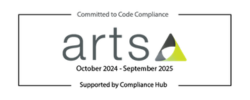DPC celebrates Maggie and female colleagues for International Women’s Day
.jpg/fit-in/700x9999/filters:no_upscale())
As the world celebrated International Women’s Day last week, we have paid tribute to some inspiring females closer to home.
Our very own Maggie Meer, who founded DPC in 2015, is a prime candidate for the global campaign held annually on March 8 to celebrate the social, economic, cultural and achievements of women.
What Maggie has accomplished in such a short space of time is nothing short of incredible. She founded DPC after becoming frustrated by her own diabetes healthcare experiences.
Five years later, DPC remains a free-CPD-accredited event that aims to give healthcare professionals from all areas the opportunity to develop their knowledge and skillset for when they treat people with diabetes.
Maggie said: “When I first created DPC, my mission was to provide all healthcare professionals, with real-world education to help them deliver the best possible care to their patients.
“Today, I am overwhelmed with the positive impact DPC has on patients in UK. Together we are making a difference and we are very much looking forward to continuing the adventure with all our DPC supporters this year too!”
Another strong, independent woman, who has cultivated a hugely successful career is Dr Shivani Misra, a consultant in Metabolic Medicine and Honorary Research Fellow at Imperial College London.
Women are still under-represented at hospital consultant-level but now more women are climbing the career ladder and reaching the same seniority as their male counterparts.
Dr Misra said: “We’ve definitely seen a shift and increasing numbers of women at senior levels in the field of medicine. I recall a different picture when I was a medical student. There’s certainly more work to do on the academic and research side, however I think with time that will change too.
“Throughout my career, I’ve only had positive experiences and I’ve been very fortunate to have been surrounded by some fantastic academic mentors of all genders. They have helped me to address some of the issues that exist in academia and clinical practice.
“I think lots of female academics are passionate about their chosen careers and with time we will see that gender bias change.
She added: “I have found being mentored by women who have made it to roles that I aspire to, has really helped make me more confident in knowing I can achieve anything that I set my mind to.
“I have been lucky to work in an institution that tries very hard to empower women scientists and medics. However, I do know other women within the medical profession who have experienced gender discrimination in both academic and clinical practice.
“I think that we should all be celebrating who we are – whatever gender that is! We should all be proud of our achievements and work hard not to marginalise any specific group. I think it’s great that women are getting together and celebrating womanhood – but I think we should all be supporting each other, irrespective of gender and in all roles and groups.”



)
)
)
)

)
)
.jpg/fit-in/1280x9999/filters:no_upscale())
.png/fit-in/1280x9999/filters:no_upscale())
)
)
)
